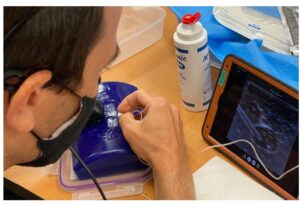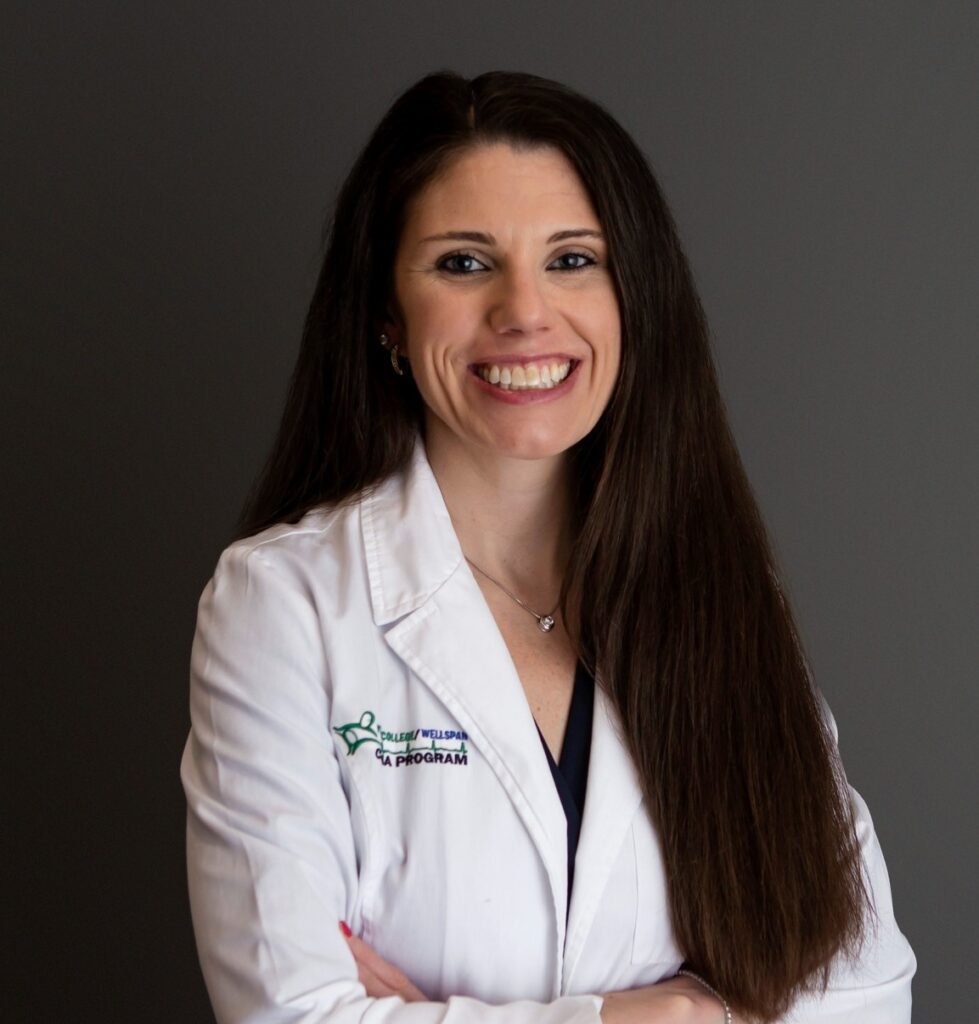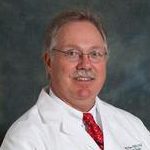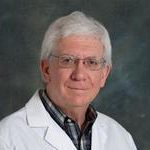Overview
Curriculum
View our DNP curriculum.
- Passionate faculty that has a mission to develop the highest quality nurse anesthetists.
- Dedicated clinical site faculty that provide excellent clinical learning opportunities and mentoring.
- Hard-working and motivated students who are becoming excellent clinicians and leaders in the Nurse Anesthesia profession.
- Devoted alumni who support the NAP and students as well as serve as professional mentors.
Thank you for taking the time to learn more about our Nurse Anesthetist Program. If you are a prospective applicant, please contact us to learn more and schedule a visit for a class or simulation. To our alumni, thank you for all you do to support our students and the NAP!
Sincerely,
Jason Lowe, Ph.D., CRNA, PHRN
Program Director
The Nurse Anesthetist Program received a ten-year reaccreditation by the Council on Accreditation of Nurse Anesthesia Educational Programs, a specialized accrediting body recognized by the Council on Recognition of Postsecondary Accreditation and the U.S. Department of Education. The next scheduled accreditation review is in 2023. The COA can be contacted at 10275 W. Higgins Rd., Suite 906, Rosemont, Illinois 60018-5603, phone: 224-275-9130
Program Philosophy
The anesthetized patient is perhaps the most vulnerable and helpless patient in all realms of healthcare. The nurse anesthetist functions in the role of an advocate during the period of the patient’s unconscious or decreased levels of cognition during surgery. The role of the advocate is an immense undertaking. To successfully navigate this role, the student nurse anesthetist must excel in the areas of knowledge, professionalism, and psychomotor skills relevant to the administration of anesthesia.
Socrates described the educated person in this fashion:
“Whom, them, do I call educated? First, those who control circumstances instead of being mastered by them…those who meet all occasions…and act in accordance with intelligent thinking…those who are honorable in all dealings, who treat good-natured persons and things that are disagreeable…”
The philosophy of the NAP follows this definition to the extent possible:
First, the NAP believes that the nurse anesthetist must have at their command the details of a discrete body of knowledge. This knowledge has come from both nursing and medicine and is taught to allow the student to better care for patients. To “control circumstances instead of being mastered by them,” the student must understand the wide range of events that can occur during a surgical procedure, as well as the armamentarium at their disposal to control these events.
Second, mastering and controlling the events requires “intelligent thinking.” Students must critically analyze the data and evidence in didactic and clinical instruction and then come to a decision based upon their analyses and then act in accordance with their decisions. After acting, the students review the effects of their actions and take corrective measures, if needed, to achieve their goals. This applies to patient care as well as completing didactic courses and assignments. The educational preparation of the students throughout the course of the program will always utilize this model.
Third, being “honorable in all dealings” requires a focus on integrity. The emphasis on autonomy in anesthesia practice makes integrity a crucial aspect of instruction. Students are expected to maintain the highest standard of honesty and openness during their instruction and practice. The YCP Graduate Catalog is very clear in its expectations for the graduate student; academic dishonesty will not be tolerated and may result in dismissal from the NAP.
Finally, the practitioner in any area of advanced nursing must “treat good-natured persons and things that are disagreeable.” It is important for each student to stay focused and positive during their rigorous course of study. Classmates and faculty are meant to be supportive. Though faculty members are always available for coaching, the student will still need an upbeat outlook and “failure is not an option” attitude to succeed in the NAP. On entering the clinical practicum, the student’s focus will begin to change. Unfailing respect for the dignity of every patient as a unique human being with his or her own individual needs and goals is crucial for the aspiring nurse anesthetist. Difficult and demanding cases, highly emotional and stressful situations in the operating room, and working with a wide variety of personalities require the student to maintain a professional demeanor always. Flexibility, calmness, and self-assurance are the hallmarks of an excellent student.
On entry into the NAP, each cohort becomes a team. Studying together and working on group projects enhances the professional relationships that will last a lifetime in the small nurse anesthetist community. The faculty has but one purpose; to help you become the best possible nurse anesthetist. On occasion, you may fail to understand why we are asking you to do the things we are asking of you. It is important for you to ask questions, understand that you may not fully grasp the answer you receive at that moment, and to trust the process. As faculty and staff, we ask for your trust in our judgment.
We, as your faculty, promise:
- Your time will not be wasted.
- You will be treated with the respect you have earned as a professional registered nurse.
- You will be reliably and validly evaluated at every point in your education
Program Statistics
Simulation Lab
- Task training lab for developing skill in:
- Basic and advanced airway techniques including direct laryngoscopy, video-assisted laryngoscopy, fiberoptic intubations, and cricothyrotomy.
- Ultrasound-guided central line and arterial line insertion.
- Spinal and epidural training.
- Peripheral nerve block training with task trainers and models.
- A high-fidelity simulated operating room featuring a highly interactive METI HPS.
- A Drager Fabius GS anesthesia gas machine that allows students to practice anesthesia delivery in a realistic environment.
- Several patient examination rooms where students can interview standardized patients (actors) and practice physical assessment skills.
- A dedicated debriefing room for students feedback.
Faculty and Staff

- Jason S. Lowe, Ph.D., CRNA, PHRN
- Program Director
- Read More

- Amy Reed, Ph.D., CRNA
- Assistant Program Director
- Read More


- Beth Terry, DNP, CRNA
- Clinical Instructor & Professor
- Read More

- Amanda Ford, DNP., CRNA
- Clinical Instructor & Professor
- Read More

- Stacey Holtzman
- CRNA Program Student Coordinator
- Read More

- Richard E. Haas, Ph.D., CRNA
- Professor Emeritus
- Read More

- Howard Burtnett, MHS, CRNA
- Professor Emeritus
- Read More
Clinical Sites
WellSpan York Hospital
York, PA 17405
Clinical Coordinator: Matthew MacDonald, CRNA
WellSpan Gettysburg Hospital
Gettysburg, PA 17325
Clinical Coordinator: Amanda Rossman, CRNA
The Children’s Hospital of Philadelphia Philadelphia, PA 19104 Clinical Coordinator: Sherell Bernard, CRNA (General) and Jessica Ross, CRNA (Cardiac)
UPMC Pinnacle Harrisburg
Harrisburg, PA 17105
Clinical Coordinator: Holly Maley, CRNA
Conemaugh Memorial Medical Center
Johnstown, PA 15905
Clinical Coordinator: Tom Fox, CRNA
Penn State Holy Spirit Hospital
Camp Hill, PA 17011
Clinical Coordinator: Anthony Langello, CRNA
Lebanon VA Medical Center
Lebanon, PA 17042
Clinical Coordinator: Mike Heck, CRNA
WellSpan Ephrata Community Hospital
Ephrata, PA 17522
Clinical Coordinator: Allen Arslanian, DNP, CRNA
Children’s Surgery Center of Lancaster
Lancaster, PA 17603
Clinical Coordinator: Irini Vaziri, CRNA
WellSpan Surgery and Rehabilitation Hospital
York, PA 17403
Clinical Coordinator: Matthew MacDonald, CRNA
Tuba City Regional Medical Care Center
Tuba City Arizona
Mathias Rupp, Clinical Coordinator, CRNA and Elizabeth Parker, Chief CRNA
Chambersburg Hospital
Chambersburg, PA 17201
Clinical Coordinator: Kris Wagner, CRNA
WVU Ruby Memorial Hospital
Morgantown, WV. 26506
Clinical Coordinator: Sara Harms, CRNA
WellSpan Good Samaritan Hospital
Lebanon, Pa. 17042
Clinical Coordinator: John Sheetz, CRNA
Meritus Health
Hagerstown, MD 21742
Clinical Coordinator: Courtney Gregory, CRNA
UPMC Pinnacle West Shore Hospital
Mechanicsburg, PA 17050
Clinical Coordinator: Diane Alo, CRNA and Katie Jensen, Chief CRNA
UPMC Pinnacle Memorial Hospital
York, PA 17405
Clinical Coordinator: Amy MacIntryre, DNP, CRNA
Penn State Hershey Medical Center
Hershey, PA 17033
Clinical Coordinator: Hayley Boyer, CRNA & Laura Carter, CRNA
Penn Highland Healthcare – Clearfield
Clearfield, PA 16830
Clinical Coordinator, Brooke Bias, DNAP, CRNA
WellSpan Apple Hill Surgical Center
York, PA 17403
Clinical Coordinator, Kevin Miller, DNP, CRNA and Kayla Yantis, Chief CRNA
MedStar Franklin Square
Baltimore, MD 21237
Clinical Coordinator, Sara Bateman CRNA and Nicole Mitchell, CRNA
Upper Chesapeake Medical Center
Bel Air, MD 21014
Clinical Coordinator, Sarah Wills, CRNA & Joseph Giba, CRNA
Greater Baltimore Medical Center
Towson, MD 21204
Clinical Coordinator, Kenneth Griffith, CRNA
WVU Berkley Medical Center
Martinsburg, WV 25401
Clinical Coordinator, Donna Helmick, CRNA
Lancaster General Hospital
Lancaster, PA 17602
Clinical Coordinator, Julia Smith, CRNA and Kaitlyn Hennessy, CRNA
UPMC Hanover Hospital
Hanover, PA 17331
Clinical Coordinator, Amy Miranda, CRNA
WellSpan Health & Surgery Center Hanover
Hanover, PA 17331
Clinical Coordinator, Brandy Little, CRNA
UPMC Community Osteopathic
Harrisburg, PA 17109
Clinical Coordinator, Kimberly Brandtonies, CRNA
Frederick Healthcare
Frederick, MD 21701
Clinical Coordintor Janine Peisach, CRNA
Penn Highland Healthcare – DuBois
DuBois, PA 15801
Clinical Coordintors Stephanie Jovenitti CRNA & Brittany McBride, CRNA
Reading Hospital Tower Health
Reading Pa 17611
Clinical Coordinator Dana Hein, CRNA
Johns Hopkin Hospital
Baltimore MD 21287
Clinical Coordinator Darolyn Milburn, CRNA
Cobre Valley Regional Medical Center
Globe AZ 85501
Clinical Coordinator Jagjit S. Sandhu, CRNA and Mars Brimhall, CRNA
WellSpan Evangelical Community Hospital
Lewistown Pa. 17837
Clinical Coordinator: Dr. Kathy Krisko-Stokes

